Elena Glinskaya - the slandered mother of Ivan the Terrible
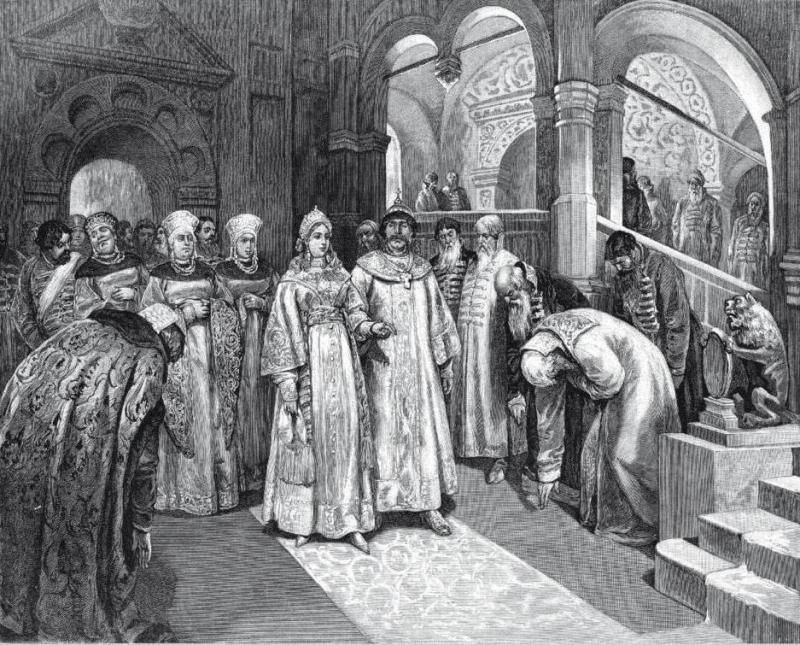
In Russian historiography, not only Ivan the Terrible was slandered, but also his mother, Elena Glinskaya. She became the second wife of Grand Duke Vasily III, she was not from the Moscow kingdom, but from the Grand Duchy of Lithuania, Russian and Zhemoyst.
It is abbreviated as the Grand Duchy of Lithuania. But this is not modern Lithuania and not Lithuanians. The Grand Duchy of Lithuania was a Western Russian principality with its capital in Smolensk, where the population was predominantly Slavic. According to Wikipedia, it existed from the middle of the 1795th century to 1569 on the territory of modern Belarus (completely), Lithuania (with the exception of the Klaipeda Territory), Ukraine (most of it, until 1569), Russia (southwestern lands, including Smolensk, Bryansk and Kursk), Poland (Podlasie, until 1561), Latvia (partially, after 1561), Estonia (partially, from 1629 to 1569) and Moldova (the left-bank part of Transnistria, until XNUMX).
The vast lands of Russia, which fell under the rule of the Grand Duchy of Lithuania and constituted the lion's share of its territory, were called Lithuanian Rus.
After the wedding of Vasily III and his young wife Glinskaya, they had no children for another four years.
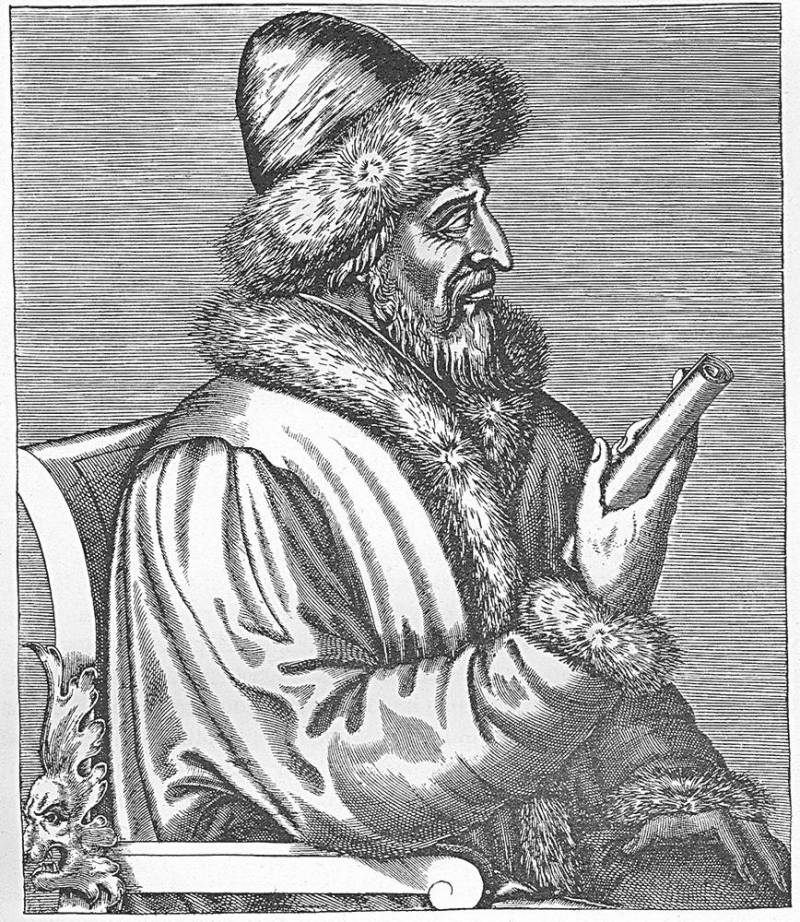
Tsar Vasily was 51 years old when his long-awaited first-born was born. In honor of the happy event, he decided to build a temple. Thus, the Church of the Ascension was built in Kolomenskoye.
Relationship of brothers
How happy the tsar was, how upset were his brothers and uncles of Ivan IV - Yuri Ivanovich Dmitrovsky and Andrei Ivanovich Staritsky. Despite the fact that they are siblings, their surnames were different.
They are Rurikovich, but they received their surnames by the name of the destinies, that is, the principalities where they ruled. Yuri Ivanovich (1480-1536) reigned in the principality of Dmitrovsky with the center in the city of Dmitrov, he was a year younger than his royal brother. Andrei Ivanovich (1490-1537) received his surname from the name of the principality with the center in the city of Staritsa, he was ten years younger than Vasily III.
N. M. Pronina describes the relationship of the brothers as follows:
Vasily III received a small scratch while hunting, which led to blood poisoning. On his deathbed, with his young son, he created a regency (guardianship) council of 7 people, which was later called the "seven boyars". It was created as a regency council, which was supposed to take the reins of government of the state due to the youth and inexperience of Elena Glinskaya, who was 25 years younger than the tsar.

In addition, at that time there was no practice of transferring power to a woman. Their task was to preserve the country in unity until Ivan came of age, when he could take power and rule independently. In 1533, the Boyar Duma included 12 boyars, most of whom were members of the Board of Trustees. The concentration of power in the hands of the regency council caused extreme dissatisfaction with that part of the Boyar Duma that was not included in the council of trustees. Within a year, the Seven Boyars turned into a kind of mercenary organ of the boyar oligarchy.
Three days after his father's death, three-year-old Ivan was crowned. But Elena Glinskaya violated the will of her husband, removed seven guardians and began to rule herself.
Regarding the doctors that surrounded Vasily III, the historian V. E. Shambarov has this version:
The first thing that comes to mind is a conspiracy. The second is that the concept of hygiene was at a low level even among doctors, that they did not wash their hands and thereby brought the infection.
According to the historian V. A. Kobrin,
Kissing the cross meant taking the highest oath, but this was not a guarantee that the word would not be broken.
В stories grandfather Vasily III, the same event took place when the oath of allegiance to the baby was confirmed by kissing the cross, but the clergyman helped to declare the involuntary oath invalid. In this regard, they write that
The so-called unreasonable arrest of the tsar's brother, Yuri Ivanovich, and sending him to places not so remote had a good reason.
The father of Ivan the Terrible, Vasily III, was still alive when the Polish king Sigismund I sent his noble representatives to Yuri Dmitrovsky - the Lithuanian magnates Peter Olelkovich and Bogdan Sapieha. These "lads" with "fiery greetings from the Polish king" offered no less fiery help in seizing the Moscow throne. This was in 1507–1508, that is, 25 years before the events described above. Then Yuri Dmitrovsky left unanswered such a tempting offer for him. It was to be expected that a new offer could arrive any minute.
And even when Tsar Vasily III was lying with a wound in Volokolamsk and understood that his days were numbered, he ordered to hide his condition from his younger brother Andrei Staritsky, who was with him. He ordered to hide what had happened from the middle brother Yuri Dmitrovsky, not to send messengers to him, but his ban was violated. Yuri Dmitrovsky found out about what had happened and came to him. The king convinced his brother that he was recovering and sent him away.
At the same time, he sent messengers to the capital for his old will, the wills of his father and grandfather. According to some sources, Vasily III studied and burned all three spiritual letters, since the letters of his father and grandfather gave his brothers the opportunity to claim the throne of the grand duke, and his letter was written at a time when he had no children. According to other sources, Vasily III destroyed only his original will in order to draw up a new one and indicate in it the infant son Ivan as the heir.
Immediately after the death of Vasily III, rumors began to spread that Yuri Dmitrovsky, together with princes Ivan Mikhailovich and Andrei Mikhailovich Shuisky, were preparing the ground for the split of the country. The Shuiskys were represented not by two brothers, but by a whole clan that could contain personal regiments.
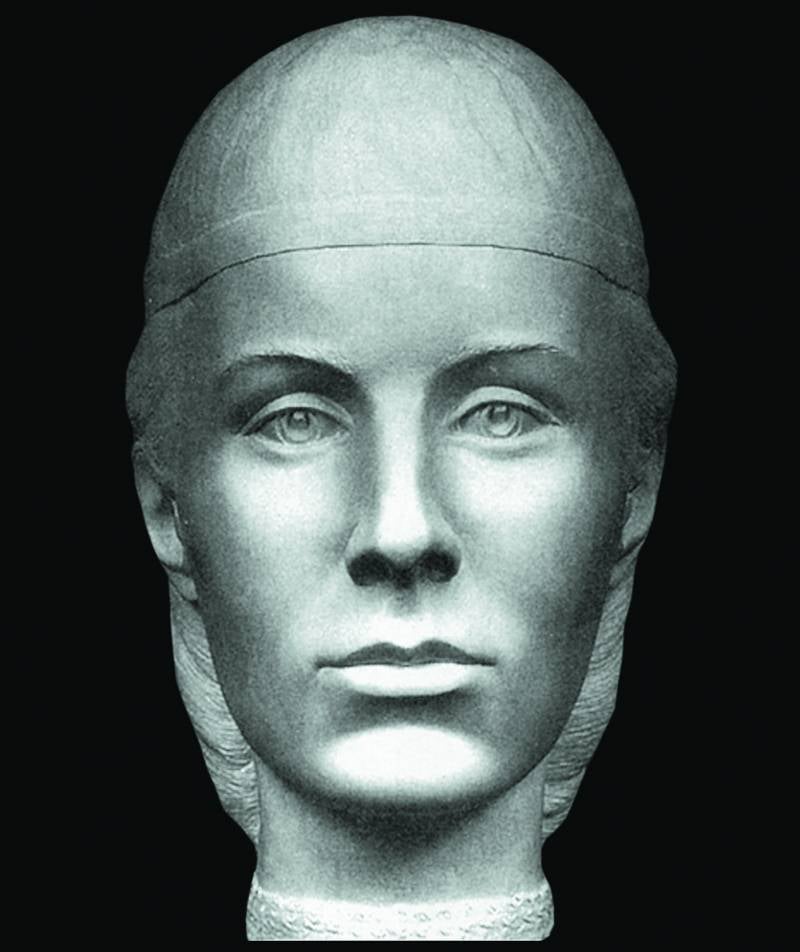
In this case, it becomes clear why Elena Glinskaya and that part of the boyars who supported her made efforts to arrest her husband's younger brother, Yuri Dmitrovsky.
As the historian Shambarov writes:
And what about Andrei Staritsky - the youngest brother of Vasily III, you ask. In the 2020 TV series Grozny, the aged Efrosinya Staritskaya, the wife of Andrei Staritsky, says that she took revenge on Grozny for her innocently murdered husband:
Filmmakers hint at the innocence of Uncle Grozny, that is, brother Vasily III, but he is not an innocent sheep, but not an accomplished traitor wolf, an intriguer in sheep's clothing.
Versions of historians
The version of historians defending Andrei Staritsky is as follows: he did not claim the throne, he always supported Vasily III in opposition to the brothers, and after the death of Yuri, Prince Andrei became dangerous as a contender for the throne, and he did not invent anything bad. Staritsky, believing that he was in danger for no reason, decided to take self-defense measures in advance, which was not difficult to do, since the specific prince had "an impressive military force" [4, p. 159].
After the capture of Glinsk power, he retired to his specific capital - the city of Staritsa. However, Elena's supporters did not leave him alone. The prince was ordered to sign a cursed letter of faithful service to the ruler. The guardianship functions that Vasily III endowed his brother with were cancelled. Living in the appanage, Andrei was constantly waiting for disgrace. Elena suspected the former guardian of all sorts of intrigues. On the advice of Ovchina's favorite Telepnev, she decided to summon Andrei to Moscow and capture him.
The specific prince sensed something was wrong and declined the invitation, saying he was sick. At the same time, he tried to convince Glinskaya of his loyalty and sent almost all of his troops to the sovereign's service. This oversight was used by Glinskaya and Ovchina. The Moscow regiments secretly moved towards Staritsa. Warned in the middle of the night about the approach of government troops, Andrei rushed from Staritsa to Torzhok. From here he could go to Lithuania, but turned to Novgorod. With the help of the Novgorod nobles, he hoped to defeat the troops led by Ovchina.
Although some nobles supported the rebellion, Andrei did not dare to fight Sheep, and, relying on his oath and guarantees of immunity, went to Moscow to ask for forgiveness from his daughter-in-law. As soon as the specific prince appeared in Moscow, he was seized and “imprisoned to death. The prisoner was put on a kind of iron mask - a heavy “iron hat” and was killed in prison for six months” [4, p. 159].
The version of the second group of historians, who have a different opinion about Staritsky, breaks the assumption of Andrei Staritsky's innocence with the following facts. Andrei Staritsky rebelled forty days after the death of Yuri Dmitrovsky. His indignation did not concern the imprisonment of his brother. It was connected exclusively with the material side of Yuri's inheritance. He demanded from Glinskaya to increase the lands of his specific principality by joining his brother's lands to it.
According to K. Valishevsky, grandfather of Ivan the Terrible,
The destinies of Andrei Staritsky and Yuri Dmitrovsky and the claims of the younger brother Vasily III were described by the historian V. E. Shambarov:
Elena Glinskaya refused a petition regarding the increase in her possessions to Andrei Staritsky, but instead allocated gold, jewelry, furs and horses from her husband's inheritance. Dissatisfied, Andrei left for Staritsa. But he did not limit himself to women's curses and accusations. Terrible's mother, in the presence of a regency council, the number of participants of which reached, according to some sources, up to twenty people, was not powerful, but she was wise in order to maneuver between the factions around the throne, while protecting her sons' inheritance and the country from external threats.
At this time, the Muscovite state was in a difficult position, opposed the Polish king Sigismund. Glinskaya had to take power into her own hands. Here is what the historian Skrynnikov writes:
After the birth of an heir in the grand-ducal family, the specific prince, apparently, did not abandon his ambitious plans. The guardians feared that Yuri would try to drive his young nephew from the throne. To prevent confusion, they captured Yuri and threw him into a dungeon. The specific sovereign lived in prison for three years and died "a suffering death, a smooth need."
In other words, he was starved to death.
The transfer of power into the hands of the guardians caused dissatisfaction with the Boyar Duma. Tensions developed between the executors of Vasily III and the leaders of the Duma. Polish agents vividly portrayed the state of affairs in Moscow after the death of Vasily III:
The Seven Boyars ruled the country for less than a year [4, p. 159].
And in such a confrontation between powerful men on the threshold of Muscovy, the Polish king Sigismund I appeared, demanding vast Russian lands for himself. In addition, he signed an agreement with the Crimean Khan on a joint campaign against Rus'.
The Polish king knew perfectly well that strife and palace wars were going on in the Muscovite state, sometimes he himself provoked them. In February 1534, that is, a year after the death of Vasily III, he demanded to return to the borders of 1508, began to lay claim to the lands of the current Bryansk, Kursk regions, Smolensk, Chernigov region of Ukraine and Gomel region of Belarus.
Simultaneously with these events, at the beginning of 1537, the army of the Kazan Khan Safa Giray launched a new offensive against Rus'. Waiting in line until the Russians fought off some external enemies, others were not going to. As you know, according to the vile laws of war, when internal enemies are activated, there are more external ones, and they attack at the same time.
Elena Glinskaya at the end of 1536 tried to settle relations with her brother-in-law, proposed an agreement under which Staritsky renounces the specific principality, and in return he is guaranteed complete freedom and security, other property, gold, but not land. Staritsky refused.
At the beginning of 1537, a messenger was sent to Prince Andrei Staritsky with a request to urgently come to Moscow with his army, so that he, as the head of the council of trustees, the brother of the late tsar, would lead the troops on the campaign. But he decided to pretend to be sick and not go ...
This absenteeism due to illness reminded me of a report from News with Putin when he was prime minister. Vladimir Vladimirovich held a meeting, was indignant at the actions of the largest metallurgical company in Russia, Mechel, that they sell raw materials abroad at prices two times lower than domestic ones, destabilizing domestic ones. Putin then said that he invited the head of the company to the meeting, but he did not come. The Prime Minister said:
Apparently, Andrei Staritsky's actions were similar, so it was necessary to "clean up the problem."
I had to "clean up the problem"
Moscow sent a doctor to Andrei Ivanovich. The doctor diagnosed "inflammation of the cunning", said that "the disease is of a diplomatic-simulation nature."
The situation seemed suspicious in Moscow, Andrei Ivanovich was again demanded to go to the capital. In turn, the repeated order to go to Moscow aroused fears in the staritsky prince, especially since ominous rumors reached him that they “want to capture him” there. In the capital, they were finally convinced that the specific prince was up to something.
Representatives of official power were again sent from the capital. And already this second “delegation” established that Andrey Staritsky was preparing not to defend the country, but to strike it “on the sly” - to raise a rebellion in order to take the throne, because he was “not a diaper”, but an adult and serious man.
Glinskaya again did not use force, on the contrary, turned to the clergy with a request to help peacefully, without bloodshed, resolve the issue with her husband's relatives. But all was in vain. Staritsky went with his troops not to defend Moscow, but to Novgorod, in order not only to gain a foothold there, but also to raise the Novgorodians against the legitimate government. Moreover, he went to Novgorod not only with his army, but also with the forces of many "sympathizers", "not satisfied with the power of the Glinskys and their cruelties."
The conflict entered the open phase in the spring of 1537. This time I had to send troops from Moscow, not doctors. Staritsky was stopped near Novgorod. It did not come to a military conflict. Andrei was forced to surrender because he received the support of only a small part of the Novgorod nobles, and not the whole of Veliky Novgorod.
Metropolitan Macarius, who at that time was the archbishop of Novgorod, prevented Staritsky from doing this. In Moscow, the rebel and his "accomplices" were tried absolutely deservedly and thrown into prison, where he died a "suffering death" six months later in December 1537.
In the same 1537, Elena Glinskaya concluded a peace treaty with the Polish king Sigismund I, which ended the Russo-Lithuanian war, which lasted 3 years from 1534 to 1537. “At the same time, Sigismund tried to save face before the Senate and the Sejm - he made traitors, Semyon Belsky and Lyatsky, scapegoats.
He announced that it was they who dragged Lithuania into the war. They provoked us with their lies that Russia is weak. Lyatsky, who escaped from a Russian prison, landed in a Lithuanian one. But Belsky again managed to escape, this time to Turkey” [2, p. 31].
The next diplomatic success of Glinskaya was negotiations with Sweden, where they agreed that the Swedes would not help the Livonian Order and Lithuania. Safa Giray also retreated.
While the men from the regency council and the Boyar Duma tried to find out who was in charge, the young widow, who at that time was no more than 28 years old, had to take power into her own hands for the sake of her future sons, confront an external threat and an internal large-scale conspiracy.
It turned out that high-ranking relatives of the king and many statesmen, among whom was the governor of a large regiment, Ivan Belsky and Ivan Vorotynsky (commander-in-chief and his assistant), were in correspondence with the Polish king and were going to open the front during the enemy’s offensive, go over to the side of the enemy. The conspiracy was uncovered [6, p. 29]. The governors were reshuffled and resisted.
It is also surprising that all historians who hate Grozny and spread slander against him treat his mother in exactly the same way. Her death did not cause a drop of compassion from Kobrin:
Here are the lines we can read from the doctor of historical sciences Skrynnikov:
But is it really possible to consider her a wise ruler, as depicted by her royal chronicles? It is impossible to answer this question due to lack of facts.
The boyars hated Glinskaya for her disdain for antiquity and secretly reviled her as an evil sorceress. The boyars took Elena's death as a holiday. Former members of the Seven Boyars honored the illegal ruler, not hesitating in expressions” [4, p. 159].
Or so the historian Valishevsky wrote:
Nationwide construction and unity of the people
Glinskaya was a princess, her roots stretched to the Golden Horde Mamai. This suggests that the blood of Varangian, Slavic, Horde, Lithuanian princes and Byzantine emperors flowed in the veins of Ivan IV through the line of grandmother Sophia Paleolog.
The historian Volodikhin in his book Ivan IV the Terrible writes the following:
The Grand Duchess, like a bird, tried to protect her two sons with wings and was ready to fight for them with any enemy to the death. In the end, Elena Glinskaya achieved her goal. But after all the extermination measures taken, the Moscow nobility had not the slightest reason to treat her more or less kindly” [7].
In response to these accusations, the defenders of Grozny respond with the facts of what Elena Glinskaya did for the Muscovite state. And a lot has been done.
Many old fortresses were reconstructed and new ones were built throughout the country, which contributed to strengthening the defense capability.
Glinskaya had a hand in the construction of Kitay-Gorod and the expansion of Moscow. In this construction, she showed an example of how national unity should look like - she personally invested a large amount of money, convinced rich boyars to do the same. Through the clergy, she turned to the townspeople, that is, city dwellers, to join the construction site.
The result was not only nationwide construction, but also the unity of the people. In three years, the Kitaigorodskaya wall was built with loopholes, cellars, underground passages, hidden passages and other devices.
In addition, she managed to implement an effective monetary reform.
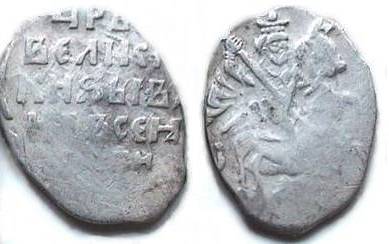
In the country, in modern terms, despite external aggression, productivity and trade grew, but there was a catastrophic shortage of silver coins. Paper money had not yet been invented. The country is filled with a huge number of fakes.
To solve this problem, all coins were withdrawn from circulation. They differed in weight, creating problems and causing mistrust. In Moscow, they established the Mint, melted down precious metals by weight and re-minted them according to a single pattern and weight. The coin depicted a horseman with a spear, thanks to which later the coin was called a “penny”.
This is how much the mother of Ivan the Terrible, Elena Glinskaya, managed to do in her five short years of reign. Historians who criticize her only occasionally mention in passing that monetary reforms were carried out under her, but there is no merit in this, they say, it happened by itself.
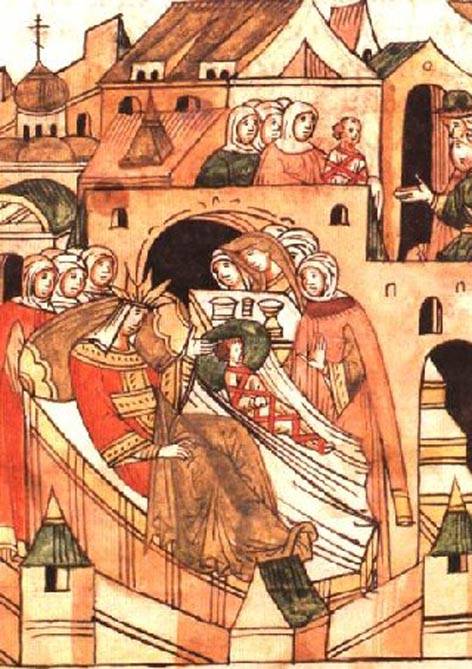
And let's compare it with another figure who also headed the USSR - with Mikhail Sergeevich Gorbachev. Yes, I understand that they lived with a difference of 500 years, but one, which was not 30 years old, strengthened the country in 5 years, and the other ruined it in 6 years.
In the modern world, money is created out of thin air by the US Federal Reserve Bank, the European Central Bank, the Bank of England. In the Middle Ages, a wise young woman without tricks to create a money supply out of thin air strengthened the financial system of the Muscovite state!
The boyars could not coordinate their actions in order to come out as a united front against the enemies, and they were able to organize a coup against the poor widow with children. The commander-in-chief of the army, Vasily Shuisky, and his brother Ivan, who ruled the Boyar Duma, organized themselves in a week, bribed someone, intimidated someone, who himself joined the coup.
People should learn from geese
Sharing this information with you, I remember the geese flying in a wedge. Biologists have recently discovered that the stroke of each bird lifts the other bird directly behind it. Building and flying a flock of birds in a wedge shape increases speed by 71% compared to the speed that each bird can develop individually.
Geese also like to experiment, they tried to fly on their own. But an attempt to fly alone did not give such results as a collective flight. The bird, after separation from the flock, quickly began to feel resistance and heaviness. To continue the flight, she returned to the flock, where the lifting force of the bird flying in front again came to the rescue.
Scientists have noticed another aspect: when the leader of the flock gets tired, he temporarily gives up his place to another bird from the flock, and he flies to the end of the school to restore strength, because at the end of the flock the lifting force is greater than at the beginning. When any goose in the flock is shot from the ground, or a goose falls ill and falls out of the flock so that it cannot continue flying, it is never left alone and abandoned.
Two geese, let's call them volunteers, leave the flock with the sick, providing him with help and support. These volunteers will stay with the weakened goose until it can fly or until it dies. And only then these two volunteers will go on a journey for their flock.
Sometimes people who consider themselves the crown of divine creation remain indifferent to someone else's misfortune. Many people should learn from geese.
If those in power were as wise as these geese, then many misfortunes and misfortunes would not exist on earth, and ordinary people would live much easier and happier.
Returning to Medieval Muscovy, I would like to say that if the relatives of Ivan the Terrible's uncles would like the good for the state, then they would not care which of the relatives is on the throne, if this relative does good, strengthens the defense capability, finances, works for the good of the state. Including if this relative is a woman.
When personal ambitions come to the fore, and the thirst for power dims the eyes, then this is a sure sign that this person will be a very bad ruler.
Sources:
1. Pronina N. M. The truth about Ivan the Terrible. 2009, p. 512.
2. Shambarov V. E. The Tsar of Terrible Rus' (Testament of Ivan the Terrible). 2009, p. 89.
3. Kobrin V. A. Ivan the Terrible. 1992, pp. 484–485.
4. Skrynnikov R. G. Vasily III. Ivan groznyj. 2008, p. 159.
5. Valishevsky K. Ivan the Terrible. Historical essay. 1993, p. 114.
6. Shambarov V. E. Ivan the Terrible against the “fifth column”. Judas of the Russian kingdom. 2017. S. 29.
7. Volodikhin D. M. Ivan IV the Terrible. 2010. Electronic edition of the book.
Information